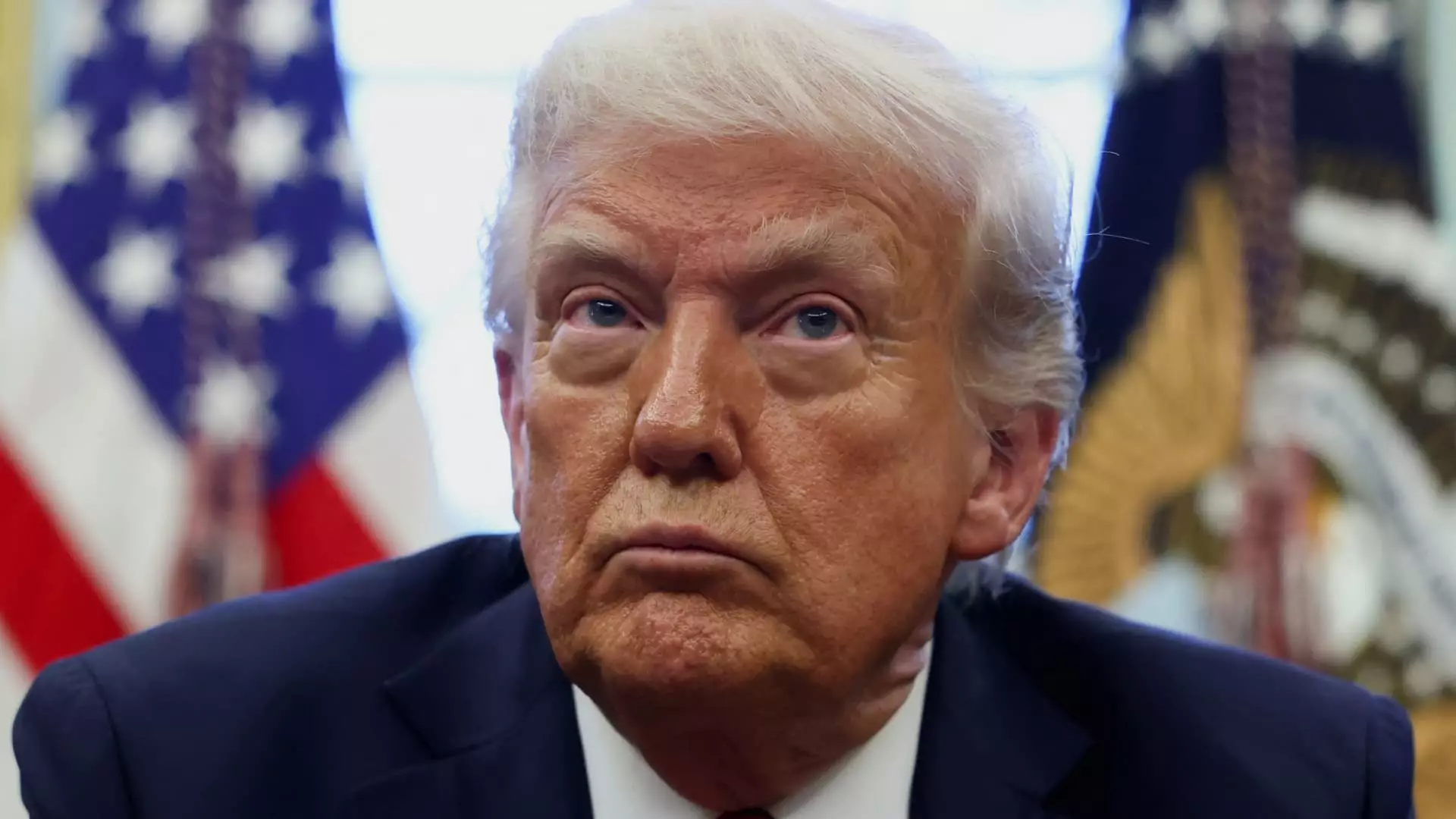In a stunning move that many are calling a blatant assault on the integrity of the civil service, former President Donald Trump has announced his intent to reclassify the employment status of federal workers. This decision, which is couched in the language of efficiency and cost-cutting, signals a dangerous pivot towards treating public service as a profit-driven enterprise rather than a vital cornerstone of democracy. By positioning the federal workforce as expendable assets, Trump risks unraveling decades of meritocratic hiring practices and job protections that have safeguarded public servants.
Creating a Culture of Fear
The implications of Trump’s directive are staggering. By categorizing policy-making federal employees under the up-andcoming “schedule policy/career,” he effectively creates a climate ripe for mass layoffs. It is troubling that a single tweet can put thousands of dedicated public servants on notice, where their careers suddenly rest on the whims of political tides rather than their professional capabilities. This arbitrary classification shifts the balance of power in an alarming way, destabilizing job security for countless Americans who dedicate their lives to serving the public. If nearly everyone in government now falls under the specter of being labeled a policy maker, the question arises: who will be safe?
Undermining Democracy in the Name of Efficiency
One cannot ignore the broader implications of this move for democratic governance. Politicizing the careers of federal employees not only undermines merit-based hiring but also threatens the very fabric of civil service—a system designed to ensure that the government functions fairly and effectively. As Everett Kelley, president of the American Federation of Government Employees, points out, Trump’s actions threaten to erode the professionalism Americans have come to rely on in their public servants. If safeguards for these workers disappear, so too does the impartial application of policies designed to serve the populace.
How Many Will Fall Victim to This Reclassification?
Estimates suggest that under the new classification, potentially hundreds of thousands of federal workers could face job insecurity. Considering that over 260,000 federal employees have already been dislocated through firings and buyouts since Trump took office, one must wonder how many more will be lost should this new order go into full effect. The argument that the federal workforce is bloated is an age-old complaint: a drumbeat from conservative circles that, rather than being an indictment of workers, often reflects a desperate attempt to rein in government oversight and accountability.
The Intersection of Politics and Professionalism
This troubling strategic reconfiguration aligns with a broader narrative of deregulation and privatization that seeks to minimize the role of government in American life. While proponents may pitch this movement as a necessity for cutting costs and increasing efficiency, it overlooks the essential complexity of governmental work that exists beyond mere numbers and bottom lines. At its core, this reclassification isn’t just a policy change; it’s an ideological stance that positions government as a variable in corporate calculus rather than a democratic institution that stands to uphold the principles of justice and equality.
This shift might resonate with those who seek to cut excess, but it fails to account for the long-standing values of trust, stability, and ethics that underpin public service. By targeting government workers who operate within the realm of policy, Trump’s approach undermines the very foundational ideals—balance, professionalism, and commitment to the common good—that America espouses.

